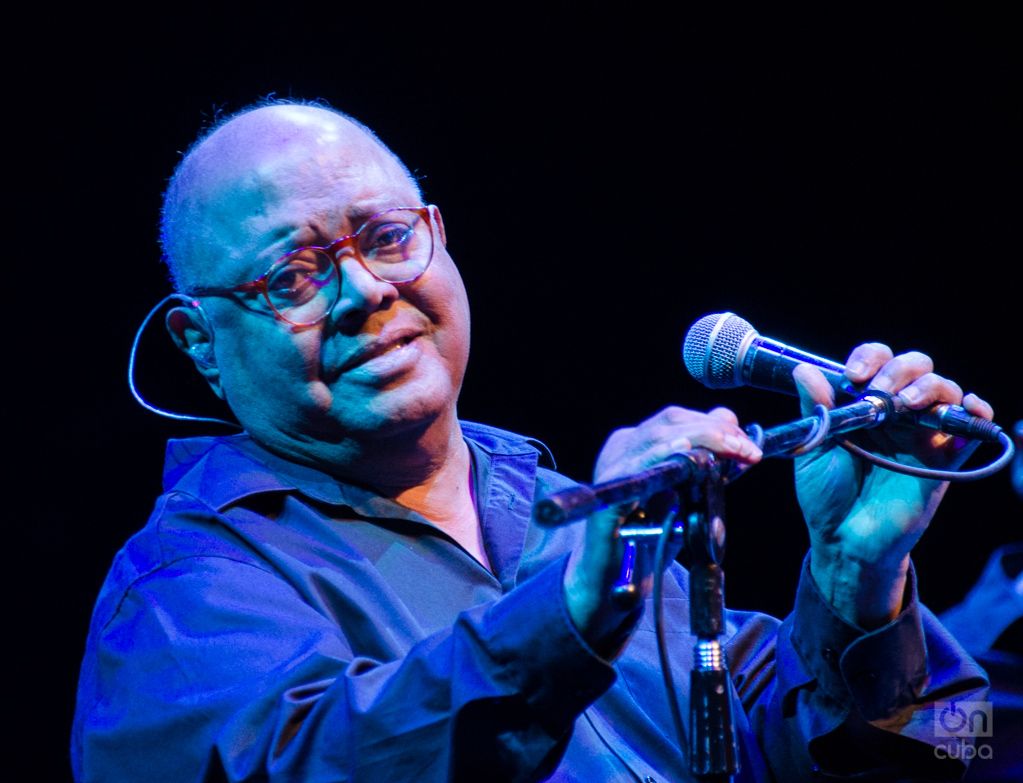
Featured image: Cuban singer Pablo Milanés during one of his last concerts in Buenos Aires, Argentina. Photo: Prensa Latina.

Orinoco Tribune – News and opinion pieces about Venezuela and beyond
From Venezuela and made by Venezuelan Chavistas

Featured image: Cuban singer Pablo Milanés during one of his last concerts in Buenos Aires, Argentina. Photo: Prensa Latina.
It is enough to review social media platforms to see that the death of singer-songwriter Pablo Milanés in Madrid today unites Cubans and Latin Americans in pain, despite political differences or musical preferences.
Cuban authorities mourn the death of Pablo Milanes
Pablo Milanés is a founder, alongside Silvio Rodríguez and Noel Nicola, of Cuba’s Nueva Trova Movement. With his passing, his songs will endure as the soundtrack of the history of the last six decades in Cuba and across Latin America.
Multiple generations of Cubans have been raised in the company of the songs composed and sung by Pablito—as many people in this country affectionately called him. The eternal “Yolanda” was a source of inspiration for many lovers, just as others described revolutionary events or condemned the excesses of dictatorships in Latin America.
There are no words that can express the enormity of the loss that the death of Pablo Milanés represents for Cuban culture, said the Cuban Minister of Culture, Alpidio Alonso.
“His poetic and musical legacy is immortal,” wrote Alonso on social media. “Our condolences go out to his family, friends and fans around the world.”
“Sad news,” wrote Luis Morlote, president of the Union of Writers and Artists of Cuba. “Cuba says goodbye to Pablo Milanés, one of the essentials of our culture. His musical creation will always accompany us.”
Milanés continued to perform until very recently. However, beginning on November 11, the Artistic Office of the National Music Award (2005) reported the postponement of Milanés most recent scheduled performances due to health problems associated with a series of recurring infections.
Cuban Band Buena Fe Postpones Concerts in Canada Defending Cuban Vaccines
The artist was hospitalized in the Spanish capital, where he was receiving treatment related to the clinical situation caused by an oncohematological disease that he suffered for several years.
Hall of fame composer
Considered one of the seminal Spanish-language songwriters of contemporary music, Milanés compiled a significant work for Cubans on the island and in Latin America. His repertoire includes over 400 compositions.
The musician was born in the eastern Cuban city of Bayamo, on February 24, 1943, and forged his professional career with great interpretive versatility, forming the Grupo de Experimentación Sonora, in which he was joined by other emblematic voices on the island.
Winner of two Latin Grammys (2006) and an award for Musical Excellence (2015), he combined a mixture of genres and sounds on the continent, which oscillated between tradition and modernity. His discography included jazz, rumba, son, filin, and bolero styles and spanned over 50 original albums.
Milanés’ music paid homage to the traditional trova and the nueva canción genre popularized in revolutionary Chile of the 1960s. His song lyrics frequently gave a nod to great figures of Cuban history such as the apostle José Martí or the national poet Nicolás Guillén, and praised Latin American icons such as Brazil’s Chico Buarque, or the greats of the Mexican bolero, including Armando Manzanero.
On the island, the artist offered his last concert at the popular Ciudad Deportiva coliseum, where thousands of compatriots attended on a night marked by iconic songs and others from his recent album Días de Luz. The promotional tour for his final album took him to stages in Spain and the US.
Translation: Orinoco Tribune
OT/JRE/SL